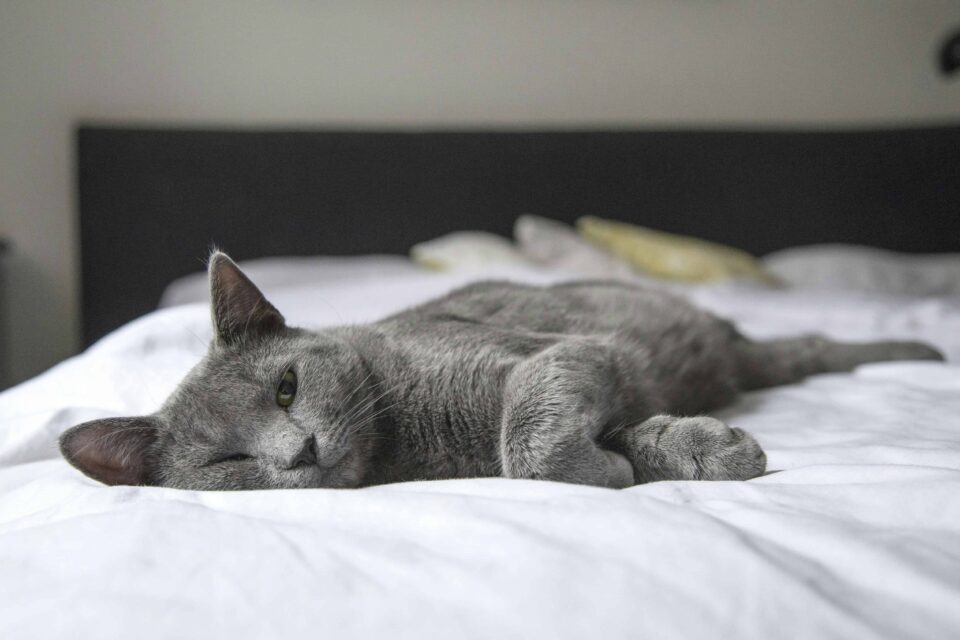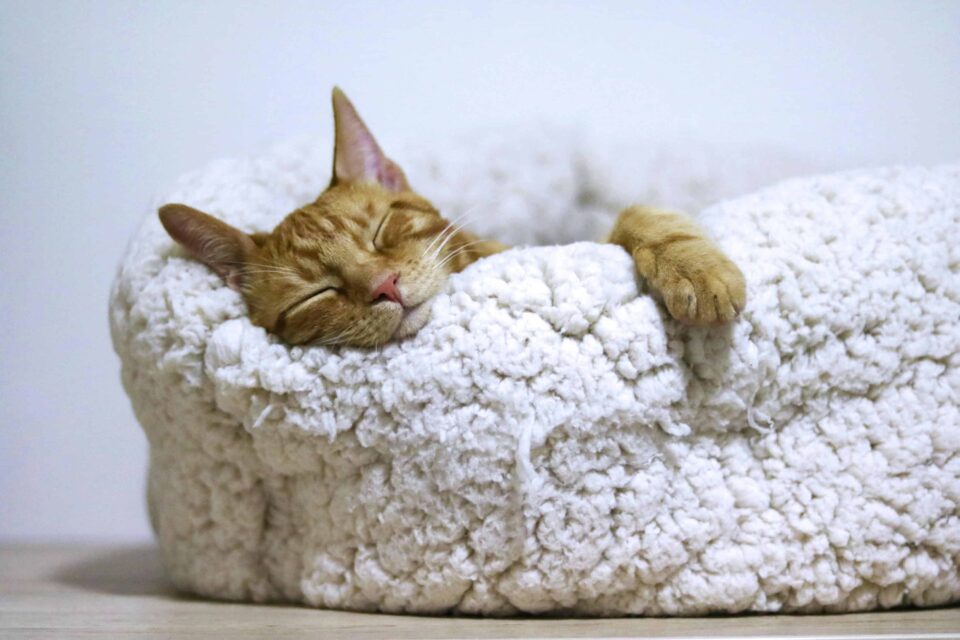Can Cats Have Spring Allergies?
Spring brings warmer weather, blooming flowers, and longer days. But it also brings allergens that may affect your cat. Pollen, dust, and mold can trigger reactions, causing discomfort. Understanding the signs of seasonal allergies helps you support your cat naturally.
Key Takeaways
- Cats can have seasonal allergies triggered by pollen, dust, or mold.
- Symptoms may include sneezing, itching, and watery eyes.
- Indoor allergens can also affect sensitive cats.
- Keeping your home clean reduces allergens and irritation.
- Herbal-based grooming products may help soothe itchy skin.
What Causes Spring Allergies in Cats?
Just like humans, cats can react to environmental allergens. Pollen from trees, grass, and flowers is a common trigger. As outdoor allergens increase in spring, indoor exposure rises too.
Dust mites, mold, and even household cleaning products can contribute. If you suspect something is causing allergies in your pet, tracking symptoms can help identify triggers. Some cats are more sensitive than others, and reactions may worsen over time.
Signs of Seasonal Allergies in Cats
Cats with allergies often show physical signs. Sneezing, watery eyes, and a runny nose are common symptoms. Itchy skin, excessive scratching, and ear infections may also occur.
Some cats develop skin irritation or hair loss from constant licking. If you’re unsure, here are some signs of seasonal allergies in cats to look out for. Changes in behavior, like increased grooming or restlessness, may also signal discomfort.
Related: Anxiety in Cats: Identifying, Managing, and Soothing Feline Stress
Can Cats Be Allergic to Pollen?
Pollen is one of the most common triggers for seasonal allergies. Outdoor cats are more exposed, but even indoor cats can be affected. Pollen can enter the home through open windows, clothing, or other pets.
Cats may sneeze more or rub their face against furniture to relieve irritation. If your cat reacts strongly during spring, they could have pollen allergies in cats. Reducing pollen exposure, such as wiping their fur after outdoor time, may help.

How to Help a Cat with Spring Allergies
Managing allergies starts with reducing exposure. Keep windows closed during high-pollen days and clean your home regularly. Washing bedding and vacuuming frequently can help remove dust and allergens.
Grooming also plays a role. Brushing removes pollen from fur, and using an allergy shampoo for cats can help soothe itchy skin. Some cats benefit from air purifiers to filter allergens in the home.
Can Allergies Cause Itchy Skin in Cats?
Skin irritation is a common reaction to allergens. Cats may scratch, lick, or bite at their fur, leading to hair loss or redness. The most affected areas are usually the face, ears, and paws.
If your cat’s skin looks irritated, natural grooming products can provide relief. Understanding cat’s itchy skin and how to soothe it can help prevent excessive scratching. Keeping their coat clean and moisturized may also reduce irritation.
Indoor Allergens and Their Effects on Cats
Allergens aren’t just found outside. Dust, mold, and even certain fabrics can cause reactions. Scented candles or strong cleaning products may also trigger symptoms in sensitive cats.
Regular dusting and switching to unscented products may help reduce irritation. If your cat seems uncomfortable indoors, checking for seasonal allergies in cats can help rule out environmental triggers. Reducing exposure to artificial scents may also improve air quality for sensitive pets.
Related: Calming Shampoo for Cats
The Role of Diet in Managing Allergies
A cat’s diet can impact their immune response to allergens. A well-balanced diet supports healthy skin and coat, making them less prone to irritation.
Omega-3 fatty acids and other nutrients may help support overall skin health. If your cat is experiencing frequent reactions, considering natural pet grooming products may be beneficial. Hydration also plays a role, so fresh water should always be available.
Do Allergies Make Cats More Anxious?
Allergies can cause discomfort, leading to stress in some cats. Constant itching, sneezing, or watery eyes can be irritating. Some cats may become restless or withdrawn when dealing with allergy symptoms.
If your cat seems more anxious during allergy season, a calming environment may help. Gentle scents or soft bedding can make them more comfortable. Learning how to calm cats down during allergy flare-ups may improve their well-being.

Grooming Tips for Cats with Allergies
Regular grooming removes allergens from the fur. Brushing your cat often helps reduce dander and pollen buildup. Bathing can also help, but it’s important to use mild, pet-safe products.
An allergy shampoo for cats may help cleanse the skin and soothe irritation. Wiping their paws and face with a damp cloth after outdoor exposure can also prevent allergens from spreading. Keeping their living space clean further supports overall skin health.
Brush Your Cat Regularly
Brushing helps remove loose fur, dander, and pollen that may cause irritation. A soft-bristle brush or grooming glove can reduce allergens while keeping their coat healthy.
Use a Hypoallergenic Shampoo
Bathing with a mild, pet-safe shampoo can help cleanse the skin and reduce itchiness. Choose a formula designed for sensitive skin to avoid further irritation.
Wipe Down Fur and Paws After Outdoor Exposure
A damp cloth can help remove pollen and dust from your cat’s coat. Pay close attention to their paws, as allergens can collect between their toes.
Keep Their Bedding and Living Area Clean
Wash their blankets, beds, and favorite resting spots regularly. Using unscented detergents can help prevent additional irritation from artificial fragrances.
Trim Nails to Reduce Scratching
Long nails can make itching worse, leading to skin irritation or small wounds. Keeping their nails trimmed helps minimize damage from excessive scratching.
When to Consult a Vet About Allergies
Mild seasonal allergies can often be managed at home. But if symptoms worsen or don’t improve, seeking advice may be necessary. Severe itching, excessive hair loss, or respiratory issues should be monitored closely.
If your cat shows ongoing discomfort, checking for signs of seasonal allergies in cats can help determine if professional care is needed. Tracking symptoms and possible triggers can also help with long-term allergy management.
Keeping Your Cat Comfortable During Allergy Season
Spring allergies can be frustrating, but small changes can make a big difference. Reducing allergens in the home, keeping their coat clean, and maintaining a stable routine helps manage symptoms.
Looking for a gentle way to support your cat’s skin health? Try Allergy Shampoo for Cats to keep their coat clean and free from allergens. Keeping your cat comfortable during allergy season helps them enjoy spring without irritation.
~Veterinarian Recommended